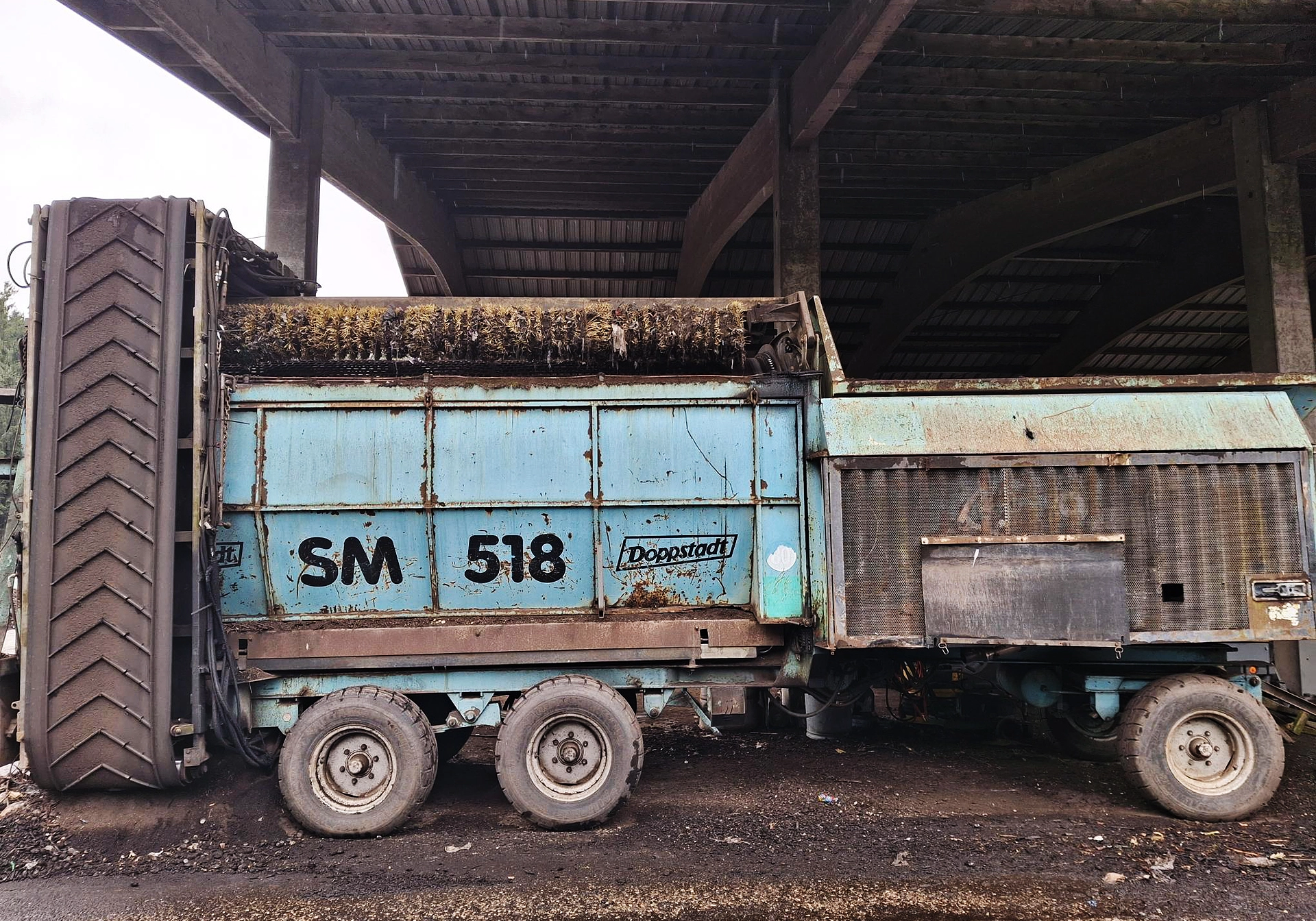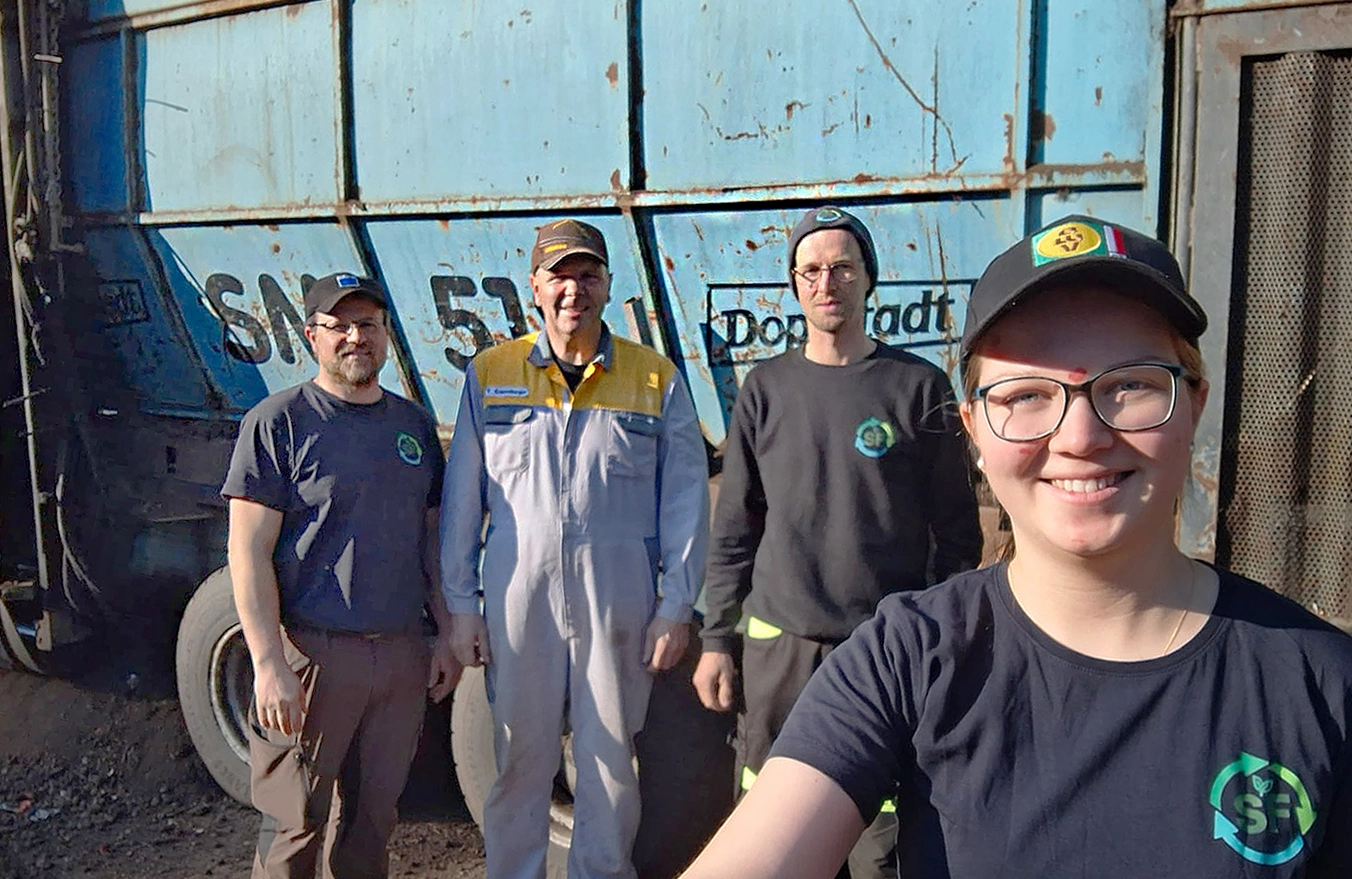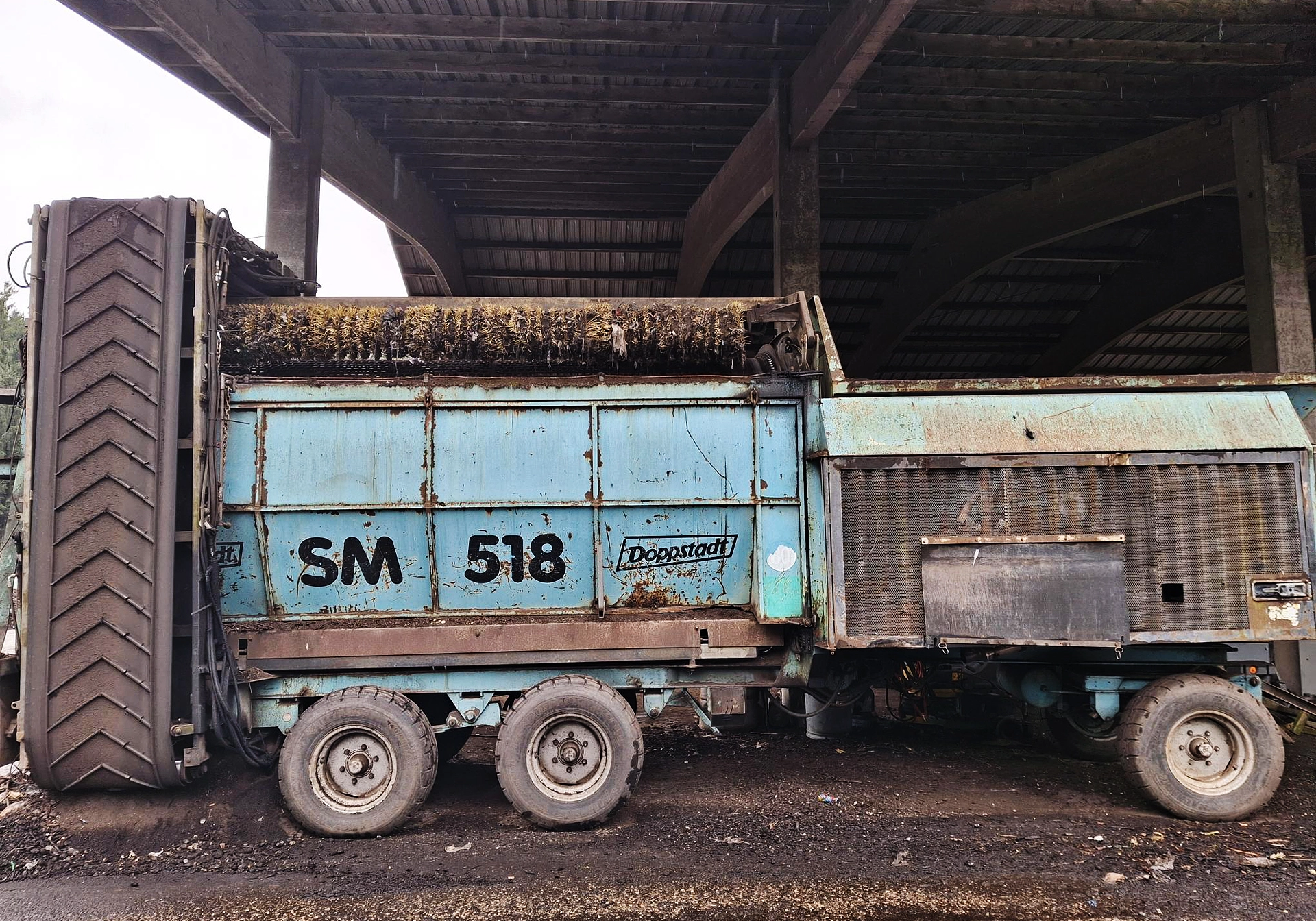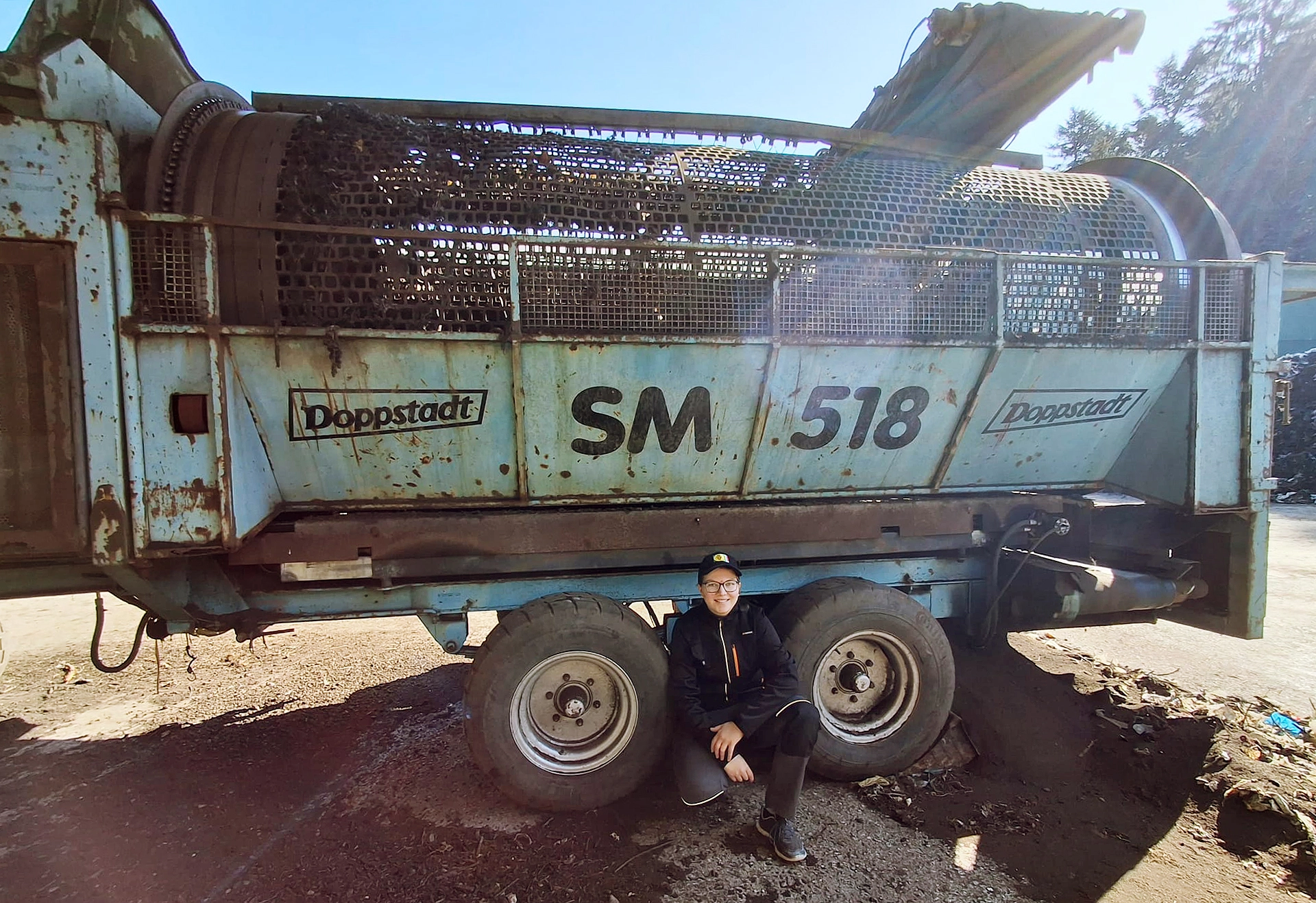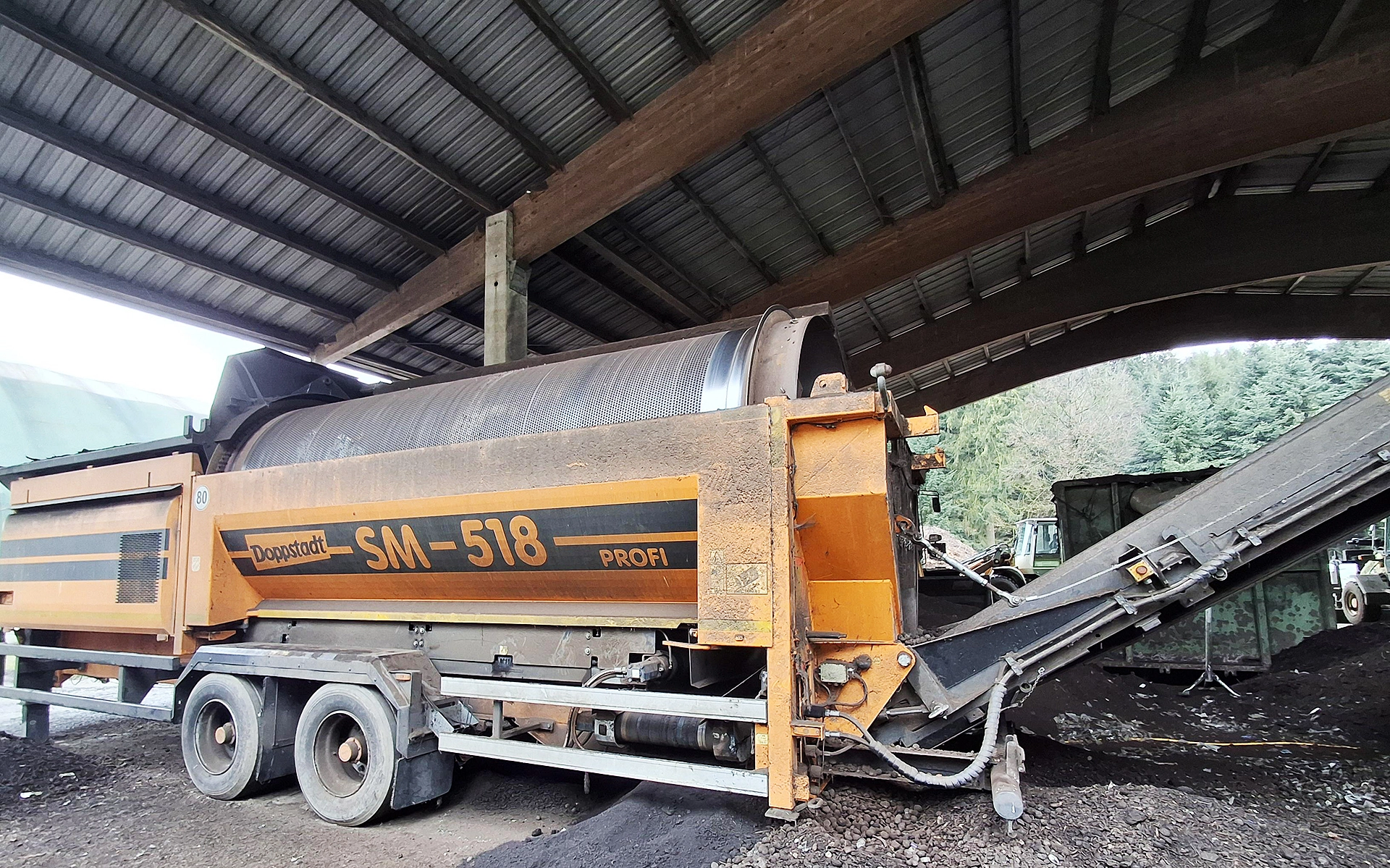At the Gampern composting plant in the Austrian district of Vöcklabruck, everything runs smoothly - literally. Because a real Doppstadt veteran is in operation here: a screening machine from 1992 - and it just keeps running and running and running.
“We've never had any major problems - the machine does its job perfectly,” says Eva Petinghofer, who has been working in the family business since 2023 and has since taken over as plant manager. Together with her father Franz Schausberger and two other colleagues, she manages one of the largest composting plants in the region. A total of 27 municipalities disposes of their organic waste on the approximately 2.5-hectare site.
Two screening machines, one sophisticated process
The plant is not resting on its laurels - on the contrary: today, two Doppstadt screening machines ensure optimum results. The older model is responsible for pre-screening. It sorts out coarse components and unwanted materials such as plastic in the first step. This is an important process, especially for organic waste from households, because unfortunately more often ends up in organic waste than actually belongs there.
A newer model of the SM 518 is responsible for the final screening. After around twelve weeks of rotting, the compost is placed under the drum again - here it is finely screened to obtain a high-quality final fraction. The resulting quality compost A+ is sold to customers and also used for agricultural purposes.
The many years of use of the Doppstadt SM 518 in particular are a example of longevity and reliability. Even if there is no great service story to tell about the machine - perhaps precisely because it runs so smoothly.
